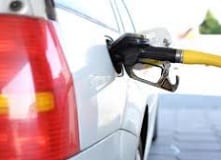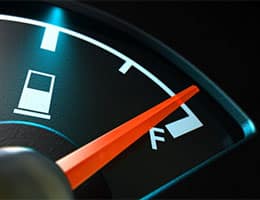 Derived from the English word gasoline , the term gasoline refers to a mixture of hydrocarbons obtained from the distillation of crude oil . Gasoline is used as fuel in various engines.
Derived from the English word gasoline , the term gasoline refers to a mixture of hydrocarbons obtained from the distillation of crude oil . Gasoline is used as fuel in various engines.
Oil is a natural fluid that comes from geological beds. It is made up of various hydrocarbons : compounds that result from the combination of hydrogen and carbon. When oil is subjected to a fractional distillation process, various products are obtained: among them, gasoline.
In countries like Argentina , Uruguay and Paraguay , gasoline is known as naphtha , which is actually one of the compounds in gasoline. Similarly, gasoline in Chile is called benzine (another fraction of petroleum).
Gasoline, naphtha or benzine is used in internal combustion engines . Most cars and motorcycles need gasoline to run their engines: these gasoline vehicles cannot run without this fuel.
Octane , octane index or octane number is a scale that refers to the temperature and pressure to which gasoline can be subjected before detonating when compressed in the engine cylinder. The higher the compression ratio, the greater the efficiency of the engine. Gasoline with the highest octane rating, therefore, is the best quality.
There are various issues that the driver of a vehicle can take into account to reduce gasoline consumption. Controlling tire pressure , avoiding sudden acceleration and braking and driving no more than 100 kilometers per hour are actions that help save fuel .
 Returning to the etymology of the word gasoline , we must point out that the English language dictionary published by Oxford cites the North American version since 1863. It is believed that its origin is found in some registered trademark of oil lamps, such as "Gazeline" and «Cazeline», since its pronunciation is quite close to that of gasoline «.
Returning to the etymology of the word gasoline , we must point out that the English language dictionary published by Oxford cites the North American version since 1863. It is believed that its origin is found in some registered trademark of oil lamps, such as "Gazeline" and «Cazeline», since its pronunciation is quite close to that of gasoline «.
In 1859, oil production was already reaching very high levels in Pennsylvania. At that time, the British writer John Cassell spoke of a "wonderful" product that would soon reach London through importation, and that should have a "wonderful" name as well, such as "Cazeline" (which he devised based on in his own last name). Three years later he published the patent for oil lamps under that brand, and in a short time he became the main distributor in England and Ireland.
Although his business had started strongly, the presence of a seller in Dublin who counterfeited the lamps affected him negatively. Faced with Cassell's accusation, the other changed the initial of the false brand and thus "Gazeline" was born. This led to a legal dispute that Cassell won in 1865, allowing him to continue using his name until 1924. Curiously, in 1863, a newspaper in Great Britain spoke of "gasolene", and some time later Americans coined " gasoline", although it is not known in which country the concept first emerged and in what direction it traveled.
Regardless of the word we use to refer to gasoline, the important thing is that combustion engines have existed since the end of the 19th century in Germany, where a fuel was manufactured from coke gas (a predecessor of natural gas , which is obtained by mixing combustible gases). Various technological advances were necessary, both in the design of the carburetors and in the mixtures of chemical products to create safer cars and less volatile gasoline, without neglecting its impact on the environment .
